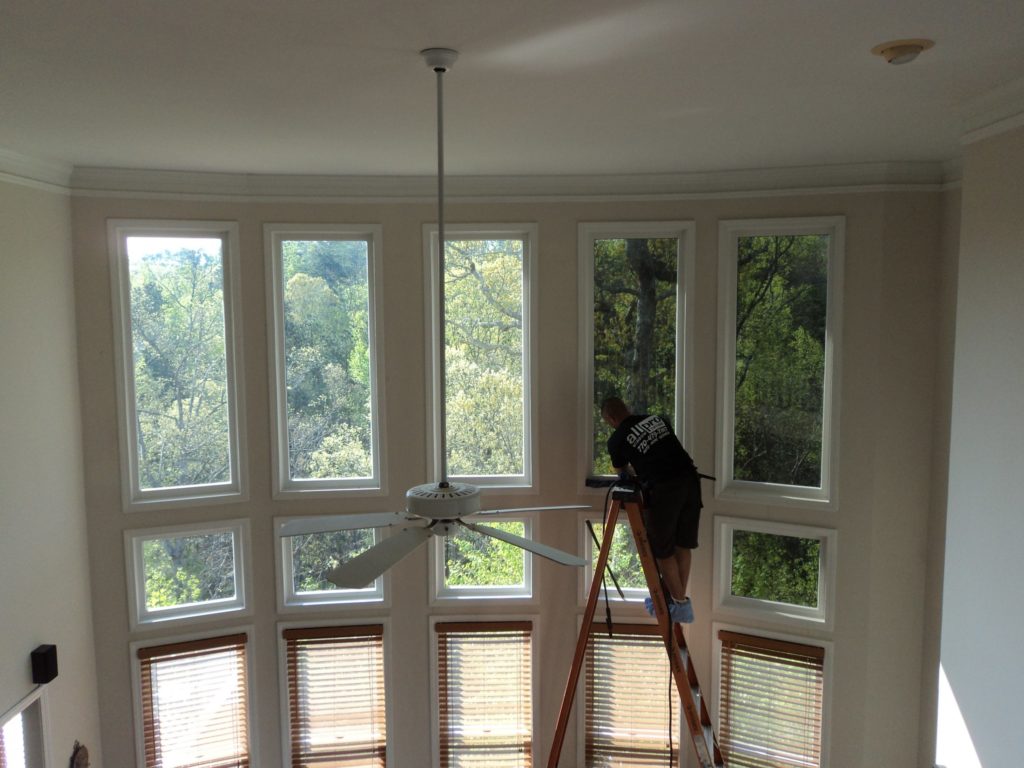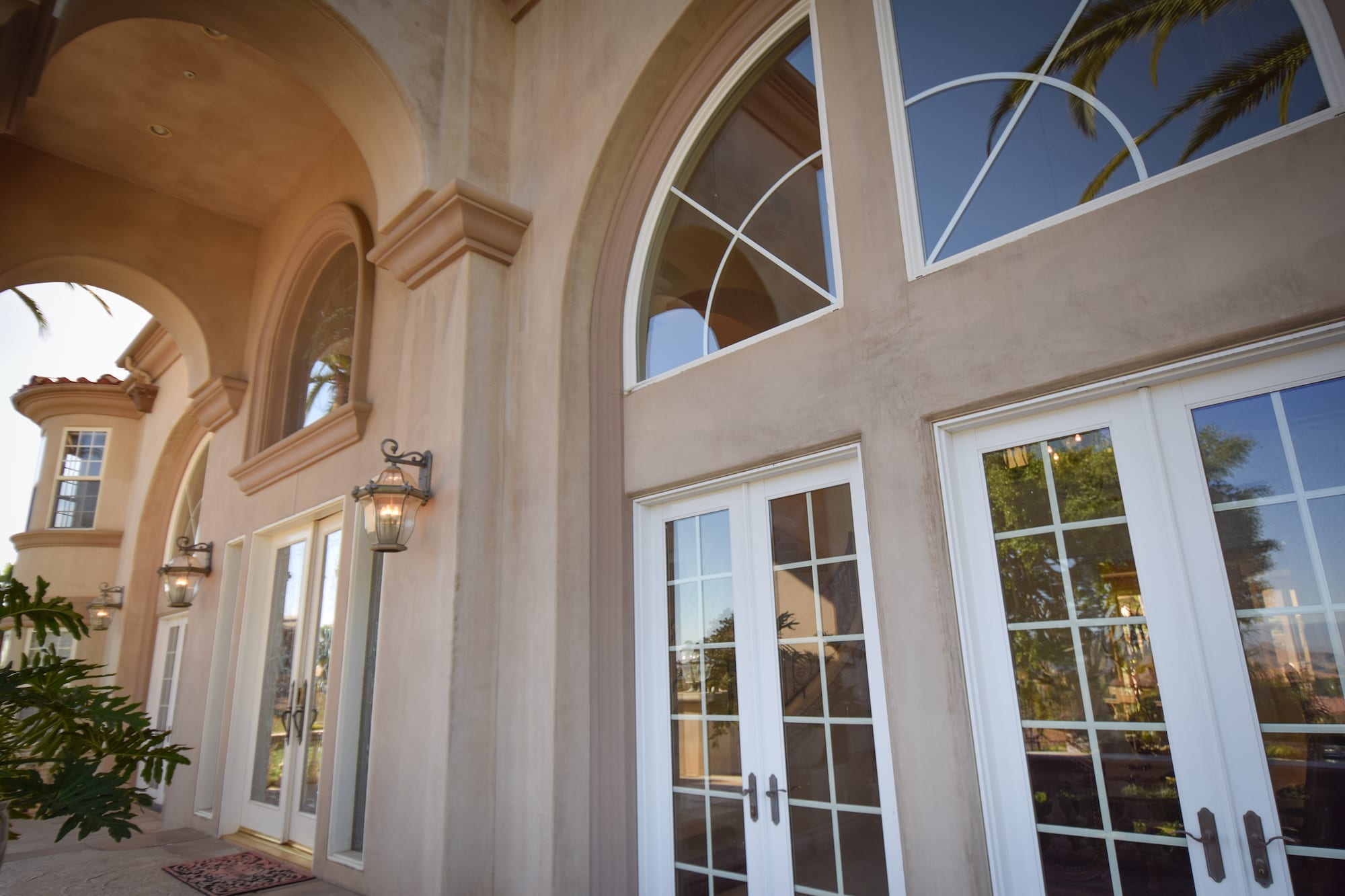Residential Window Tint: Boost Personal Privacy and Design in your house
Residential Window Tint: Boost Personal Privacy and Design in your house
Blog Article
Just How Residential Window Tinting Enhances Your Home's Energy Performance
Residential window tinting offers a compelling remedy for property owners looking for to improve power efficiency within their living spaces. By applying specialized movies to home windows, it effectively reduces warm transfer, consequently maintaining interior temperature levels and minimizing the need for excessive heating or air conditioning.
Comprehending Window Tinting
Comprehending window tinting is crucial for homeowners looking for to boost both convenience and power performance in their living rooms. Residential Window Tint. Home window tinting includes the application of a slim film to the interior or outside surface area of glass windows. This movie can substantially regulate the amount of sunshine and warmth that gets in a home, therefore affecting indoor climate conditions
There are different types of home window tinting films readily available, each with unique homes. The effectiveness of window tinting is usually determined by its Visible Light Transmission (VLT) percentage, which suggests how much light can pass through the movie.
Benefits of Power Performance
Window tinting not only enhances appearances however also plays a substantial function in boosting energy performance within residential areas. By minimizing warm transfer via home windows, colored films produce a much more stable interior climate, which can lead to considerable reductions in power intake for heating and air conditioning. This energy effectiveness translates into reduced energy bills, providing home owners with substantial lasting cost savings.

In addition, window tinting enhances the convenience of living rooms. By decreasing glare and obstructing unsafe UV rays, colored home windows develop an even more pleasant atmosphere, which can bring about improved health for owners. The protection against UV rays likewise helps protect furniture and flooring from fading, adding to the durability of home things.
Exactly How Tinting Functions
Tinting films operate with a combination of innovative products and innovations created to regulate the quantity of solar energy getting in a home. Mainly composed of polyester, these movies commonly incorporate metallic or ceramic bits that soak up and show warmth. This double ability enables them to significantly lower the penetration of ultraviolet (UV) rays and infrared radiation while permitting noticeable light to go through.
The performance of window tinting is determined by its solar warmth gain coefficient (SHGC), which shows just how much solar power is transmitted with the window. Lower SHGC worths are more effective as they represent greater heat rejection. Additionally, home window tints can include a range of tones, permitting homeowners to customize their aesthetic choices while enhancing energy efficiency.
In addition, these movies work as a barrier, stopping warmth loss during colder months by showing interior heat back right into the space. This thermal insulation result complements the cooling benefits acquired during warmer months, adding to a balanced indoor climate year-round. By managing solar power efficiently, domestic window tinting not only enhances comfort but also plays an important function in minimizing power usage and reducing energy bills.
Choosing the Right Tint

There are different kinds of home window movies available, consisting of colored, metalized, and ceramic. Ceramic movies provide outstanding warm control without endangering presence and are very durable, making them a prominent option.
Visible light transmission (VLT) is one more critical variable, as it indicates the quantity of all-natural light that can pass through the tinted glass. Homeowners should select a tint with a VLT that complements their lighting preferences while still providing adequate glare decrease.
In addition, assessing the solar warmth gain coefficient (SHGC) can aid establish just how well a color can obstruct warm from sunlight. A lower SHGC shows far better warmth control, inevitably enhancing energy efficiency.
Installation and Maintenance Tips
Correct setup and maintenance are essential parts in making best use of the advantages of domestic home window tinting. To accomplish optimal outcomes, it is recommended to work with a certified professional for installment. This guarantees that the color is applied appropriately, preventing air bubbles, wrinkles, or imbalance that could endanger performance. Specialists also make use of specialized tools and strategies, which can enhance the durability and performance of the tint.
Complying with installation, upkeep is vital to lengthen the life of the home window film. It is suggested to wait at the very least one month prior to cleaning the tinted windows to enable the glue to cure fully. When cleansing, make use of a soft towel and a gentle, ammonia-free cleaner to avoid damaging the movie. Stay clear of unpleasant materials that could scrape the surface area.
Furthermore, routine assessments are valuable. Examine for any peeling or bubbling, which could indicate improper installment or wear over time - Residential Window Tint. Addressing these issues quickly can avoid further damage and maintain power performance. By sticking to these setup and maintenance suggestions, property owners can ensure their home window tinting remains to offer considerable energy savings and convenience for several years ahead.
Conclusion
In verdict, domestic home window tinting serves as an efficient solution for improving power efficiency within homes. By minimizing heat transfer and obstructing harmful UV rays, window you could try these out movies add to lower power consumption and enhanced interior convenience.
Window tinting entails the application of a slim film to the interior or outside surface area of glass home windows. By decreasing warm transfer via windows, colored movies create a more steady interior environment, which can lead to significant reductions in power intake for home heating and cooling.The performance of home window tinting is gauged by its solar heat gain coefficient (SHGC), which indicates how visit much solar energy is transferred with the home window. By taking care of solar power effectively, domestic window tinting not only improves convenience however likewise plays a crucial duty in lowering power intake and decreasing energy costs.
By reducing heat transfer and blocking hazardous UV rays, window films contribute to reduce energy usage and boosted interior convenience.
Report this page